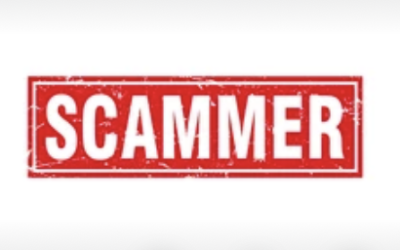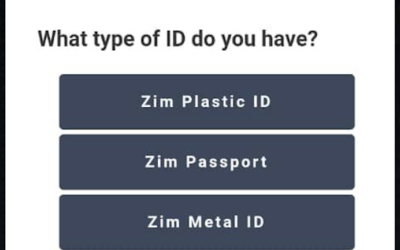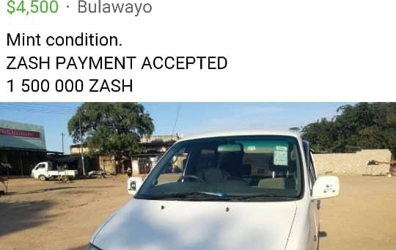
The Scary Truth About Central Bank Digital Currencies.
Dear ZIMBOCASH Family
Greetings from us here at ZIMBOCASH. We stand at a moment in history where the central banks of the world are working together to create one globally integrated cashless banking system that will record all of the world’s transactions on a single integrated ledger. It will impact you in unique ways in the coming years, and we recommend you read this email.
They are doing this through something called Central Bank Digital Currencies (“CBDCs”). The IMF is coordinating this and is working to get every country in the world to implement a CBDC. Over 90% of the world’s central banks are investigating them. Zimbabwe is exploring a CBDC. But CBDCs are not the solution for Zimbabwe’s problems. It is a really bad idea. Here is why.
Cashless
The aim of the global CBDC project is to remove cash from the system and to implement a cashless society — a global cashless society. But why the move to remove cash?
Cash is a sensitive issue. Cash is a fundamental pillar of people being able to transact in freedom. You can transact with anyone, anywhere with cash in an anonymous and independent way. It gives you a unique ability to choose what you want and with whom you want to engage at any stage. It is a foundation to your basic other freedoms.
The flip side of this is that cash is unregulated, and the implementation of a cashless system will allow for governments to more radically stamp out criminal activity. It comes at a cost though. The cost is a loss of your basic freedoms.
Modern Monetary Theory
This goes hand in hand with the new idea (not so new) swirling around most of global entities. The idea called Modern Monetary Theory proposes that governments should be able to spend as much as they need to without restraint, ultimately funded by newly printed money. It’s actually an old idea with a new name.
The theory goes that, to stop people from raising prices and to monitor the movement of the newly created cash, the global authorities would need to ensure that all transactions of the economy are carefully monitored on digital systems — in other words, Transaction Control.
Digital Identity
Digital currencies need, as a base, a fully developed digital ID of each person. This isn’t a problem except that the global entities such as the World Economic Forum (“WEF”) are looking to ramp this up significantly. The WEF recently released a paper which looks to create these digital IDs on a global digital ID database. They propose collecting information about everyone’s behaviour and tying this to their digital ID. They even suggest a digital ID device which is “embedded in body” (see Table 1 of the paper). The principal of this digital ID would be to determine who has access to services including access to bank accounts, healthcare, telecommunications, food, social platforms etc.
Social Credit System
Tied to Central Bank Digital Currencies, these digital identities would enable the surveillance of various population behaviours such as vaccine passports and climate change actions. Known as Environmental Social and Governance (“ESG”) criteria, there is a move towards monitoring people’s compliance with green targets — even monitoring how much meat people eat, how much they drive and other behaviours.
Who is behind these CBDCs
The CBDC issue is being driven by global institutions. The International Monetary Fund (an agency of the United Nations) is co-ordinating the move towards CBDCs and is aided in part by the US Federal Reserve.
The primary implementation tool is for the IMF (or sister UN agencies such as the World Bank) to provide loans that are tied to “green targets”, together with pressure being applied through various central bank organisations such as the Network of Central Banks and Supervisors for Greening the Financial System and the Bank of International Settlements.
In particular, after the COVID crisis, the IMF made loans to over 86 countries while requiring commitments from these countries to going green. Included in these loans was a $1 bn loan to Zimbabwe in August 2021.
In short, the IMF requires that any country who receives a loan sign up to an extensive list of environmental, social and governance provisions which include the Central Bank Digital Currency program.
The World Economic Forum
The World Economic Forum (WEF) also appears to have significant influence here. They are trying to drive what they call the Great Reset: a reset of the world towards a centrally controlled ecosystem including fusing physical, digital and biological identities into one global integrated technology. The WEF goals are particularly alarming with various representatives proposing the use of transhumanist approaches.
It really isn’t clear to what extent the WEF and the IMF are co-ordinating and what sort of timeline they are on. It doesn’t seem feasible that the world could go cashless in the near future. But their intentions seem to be quite clear.
In short, CBDCs are pointing towards a coming centralisation of world finance and are an alarming overreach of global institutions trying to take over the interests of ordinary people across the world.
Would a CBDC be helpful for Zimbabwe?
Would it be ultimately useful for Zimbabwe to implement a CBDC in the country?
- Removing cash
A truly cashless CBDC relies on the removal of all cash from the system. This could mean other currencies could be removed from circulation including, for instance, USD bank accounts being converted into CBDC accounts.
However, the truly cashless goal only works if everyone in the country has electricity all the time, and internet/cellular connectivity which is definitely not the case in Zimbabwe.
What would happen if there was a pure cashless CBDC and there was a power cut? People wouldn’t be able to trade. Zimbabwe is in no position to remove cash from the society completely.
- CBDC operating alongside cash?
If cash were to remain, then there would be no real change to the current system. Zimbabwe already has a digital currency created by the Reserve Bank of Zimbabwe that works alongside other cash.
It is called the Real Time Gross Settlement dollar or RTGS dollar for short. Launched in June 2019, it has operated alongside paper Zimbabwe dollars. The only problem with the system is that there is no limit to the money supply. As the money supply has increased, the RTGS dollar has depreciated.
For practical purposes a CBDC would be identical to the current RTGS system for most users except for a few additional major risks.
- Who develops and controls the technology?
While the RTGS system is currently fully developed and managed within Zimbabwe, we understand that most of the CBDC technology is being developed internationally. There is a risk that international institutions may have back-door access to the CBDC technology and these institutions may be able to gain control of the Zimbabwean financial system.
- Approvals required from offshore institutions
Would a CBDC give the Zimbabwean government freedom to implement policies? A Zimbabwean CBDC would become fully integrated into the global financial system. It would likely mean that Zimbabwe would be dependent on its continued access to the global financial system. It seems unlikely that Zimbabwe would be free to implement its own policies and would be under tight restrictions.
- Global ID infrastructure
Would global ID infrastructure be implemented in Zimbabwe? While it seems infeasible that the global ID infrastructure could be implemented in Zimbabwe without serious changes and difficulties in implementation, a CBDC would need to be built on top an appropriate digital ID on-boarding system. The key risk here, is whether this would be controlled or influenced by global institutions. It possibly puts the data security of the Zimbabwean population at risk.
- Would the Zimbabwean CBDC result in a loss of sovereignty to foreign powers?
Ultimately, there is a risk that Zimbabwe loses control of its financial system to global institutions. The United Nations, the International Monetary Fund, the World Economic Forum and other global institutions do not represent the interests of Zimbabwe. They are not elected by Zimbabweans — nor indeed by any other country for that matter.
A Central Bank Digital Currency system runs a very real risk that Zimbabwe would cede control to these foreign powers and would ultimately be a loss of sovereignty to these organisations who do not have the interests of the Zimbabwean country at heart.
The Solution
In our view, there is only one feasibly solution for Zimbabwe to retain its sovereignty and dignity. The solution, is decentralised sound money. Indeed this is the only solution for any country wanting to explore alternatives to the CBDC system.
This is what we are pursuing with the ZIMBOCASH ecosystem. As a currency, ZASH is fixed in supply using blockchain technology. We are pioneering the dream of bitcoin — a network of buyers and sellers making peer to peer payments in Zimbabwe using a currency that is fixed in supply.
Ultimately, money printing enables gross centralised control, whereas decentralised sound money enables local freedoms for people and for nations.
If Zimbabwe were to embrace a decentralised sound money system, Zimbabwe would be the only country in the world that has a fixed supply of money. In a world where countries are printing extreme amounts of money, Zimbabwe could become a banking centre. It would be a country where people would want to put their money!
How the ZIMBOCASH team plans to deal with some of the weaknesses in digital currencies mentioned above:
- Cash: Every country needs some level of cash. Our goal is to implement a point of sale payments system where we can issue prepaid cards that can be used to transact between people in trade who do not have access to the internet. This would be similar to the fuel voucher system that was previously implemented in country. It would be the way of creating cash from a cashless system.
- ID: While any payments system needs a thorough ID verification solution to avoid fraud, we are very concerned regarding the invasive plans being made by global institutions. We use standard ID verification approaches used by established verification agencies, which are safe, effective and private.
- Tech Development: A blockchain is an open system that can be fully audited and reviewed by other parties. ZASH currently uses the TRON decentralised ecosystem which has been fully peer reviewed and is open-source.
- Fixed Supply of Money: We use blockchain technology to fix the supply of money– no-one, not even ourselves can change the supply of money.
If you are from Zimbabwe, you can sign up to receive $8 worth of ZASH and can earn more when you refer others. If you are not from Zimbabwe you can sign up to follow what we are doing or purchase ZASH directly:
Stay tuned for more on this series on Zimbabwe’s monetary alternatives:
- The US dollar is not the solution to Zimbabwe’s problems
- Why Central Bank Digital Currencies are not Zimbabwe’s hope.
- Why gold is not the silver bullet.
- Why Bitcoin is not Zimbabwe’s bit.
- Why not other cryptos.
- Is a currency board the best?
Kind Regards
The ZIMBOCASH Team
READ MORE
ZIMBOCASH achieves breakthrough in Zimbabwe
Press Release ZIMBOCASH, the ground-breaking decentralised currency system for Zimbabwe, has launched its updated payment system, where all its users are fully verified. Head of Communications at ZIMBOCASH, Philip Haslam, says it’s a massive step. “We are now able to...
How we are dealing with scammers
Hi ZIMBOCASH Family Since the very beginning of the ZIMBOCASH program, we have faced scammers. Our goal has been to create a system that will transform Zimbabwe but for some reason, a few people see this as an invitation to scam. It’s not everyone – most of...
Verify your account with any valid form of Zimbabwean ID
Hi ZIMBOCASH Family You asked, and we delivered. You can now verify your account with any valid form of Zimbabwean ID including a Zim metal ID, a Zim plastic ID, a Zim Passport, or a Zim Drivers licence. We’ve been working hard to make sure that we include all...
ZIMBOCASH users can now sell on the exchange
Hi ZIMBOCASH Family We’ve got exciting news for you… After announcing last week that our system is live, we are opening up transfers to the exchange for users who make the most transactions. Our goal has been from the beginning to build a network of users who...
We’re live again with ZASH payments!
Hi ZIMBOCASH Family We did it! ZASH payments are live. If you are Zimbabwean and you live in Zimbabwe, you can now verify your ID, receive your ZASH allocation and make payments to others. Log in to your account at www.zimbo.cash/login and confirm your ID to...
Important next steps
Hi ZIMBOCASH Family We are still passionately pursuing a sound-money solution for Zimbabwe. We are closer than ever before to executing on our goals and we wanted to give you an update. We have taken down our previous login website and put up a maintenance...
The one thing that is changing everything
Hi ZIMBOCASH Family So a quick update into where we are at the moment, and then we want to talk more about what no-one else is talking about, but is the reason why we exist. We’ve been quiet the past few months but we have been working hard behind the scenes....
The birth of something great
Dear ZIMBOCASH family We’re still here. Working hard towards our goal of sound-money. We have not forgotten about you. So here is an update about us. If this is your first fireside chat, we’ll tell you a bit about ourselves. Background We started about two...
Work on the payments system
Hello ZIMBOCASH Family We wanted to let you know that we have had to take our payments gateway down while we work on our identity validation processes. We have grown amazingly fast in the last few days with total gross subscribers sitting at 131 000...











